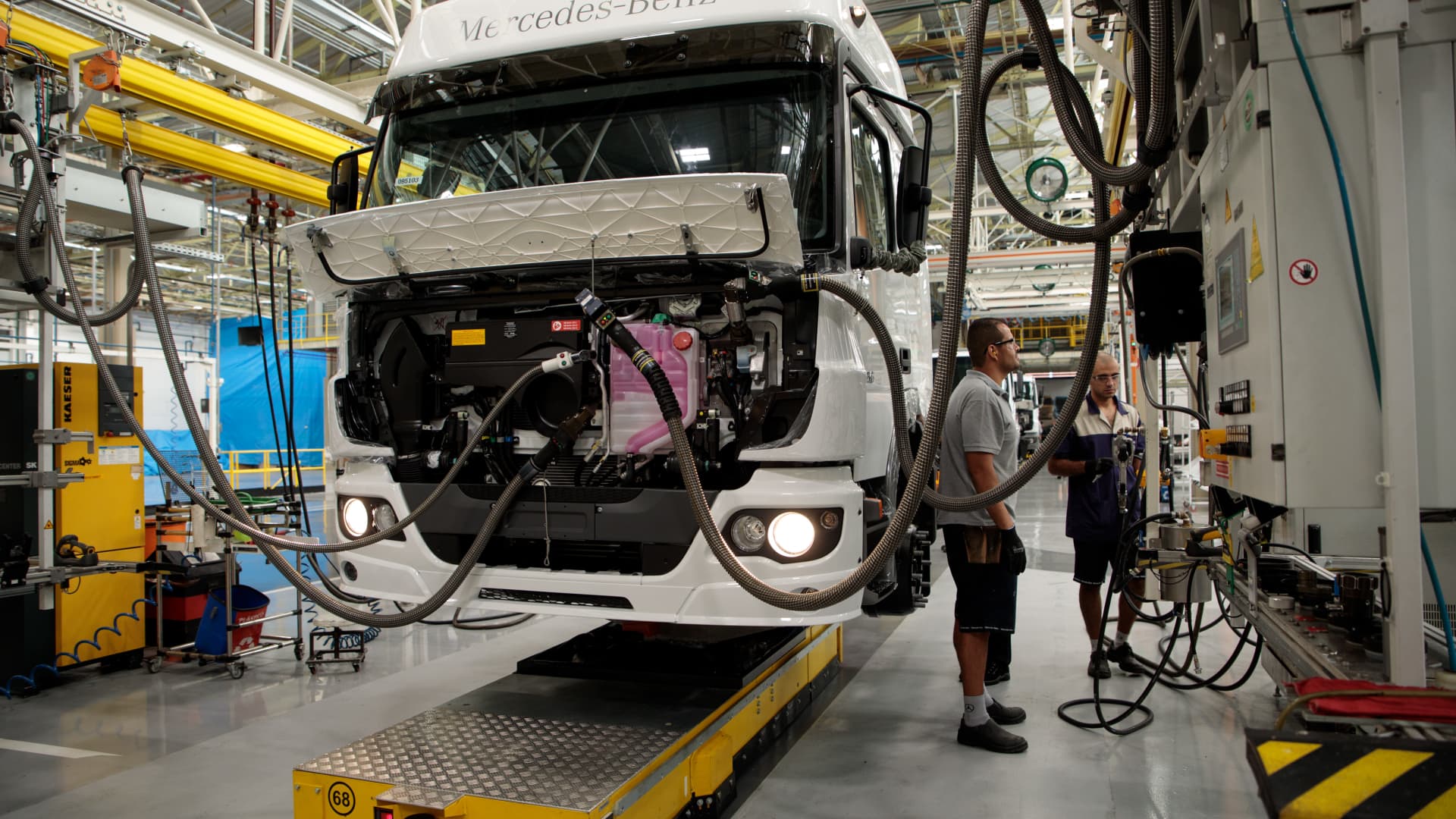Supply chain disruptions are causing a production backlog at the world’s largest truckmaker, Daimler Trucks.
Bloomberg | Getty Images
Shares of Daimler Truck hit a fresh all-time high Friday, spiking more than 17%, after posting record full-year profit and announcing a 2 billion euro ($2.16 billion) share buyback program.
The German truck maker posted better-than-expected pretax earnings of 5.5 billion euros for 2023, up 39% on the previous year’s 4.4 billion euros. Analysts had expected EBIT (earnings before income tax) of 5.2 billion euros.
Daimler Truck’s CEO, Martin Daum, told CNBC that the company had previously advised that its final results would be at the upper end of its forecasts following a “red-hot” 2023.
“If we say upper end, we mean upper end,” he told CNBC’s Annette Weisbach.
In a statement, Daimler described 2023 as a record year for the company, buoyed by excess demand following the supply chain constraints of 2022. But it cautioned that revenue and earnings were likely to be flat in 2024 amid “difficult economic conditions.”
Daum said price pressures would likely weigh on the company slightly in 2024, but characterized the outlook as one of “sunny conditions.”
“We’re going back to a good year,” he said. “Normalization being back slightly, but still on a good level.”
Daimler also said it would conduct its buyback program over the course of the coming 24 months and proposed a dividend of 1.9 euros per share for 2023, up from 1.3 euros the previous year. Daum said the move was indicative of the health of the company.
“We invest a lot,” he said. “We will continue in that pace but we still will have leftover money and that certainly belongs to our shareholders.”
It follows similar moves by other vehicle makers including Mercedes and General Motors, which also announced share buybacks and increased dividends over recent months to return cash to investors.
“This is what not just our company but in general healthy well-financed companies with a solid balance sheet can and will do,” he added.
This story originally appeared on CNBC

